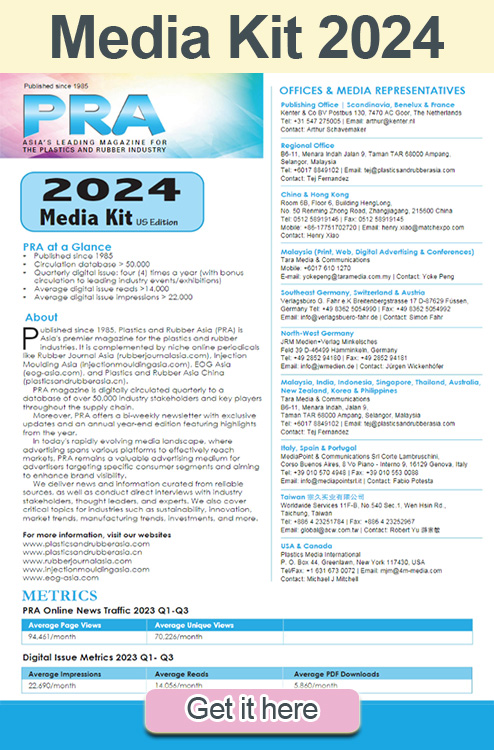EU to ban plastic waste exports to third world/poorer countries

The European Union (EU) has formulated rules whereby it will ensure that it does not export its “environmental challenges” to third world countries. The rules will also facilitate the use of waste as a resource. The agreement is a contribution to the goal of the European Green Deal of reducing pollution and advancing the circular economy.
"The EU will finally assume responsibility for its plastic waste by banning its export to non-OECD countries,” Danish lawmaker Pernille Weiss said in a statement.
The rules, which must be formally approved by the European Council and parliament before they come into force, mean that the 27 EU countries will no longer be able to export plastic waste to the 38 rich OECD countries and it bans exports of plastic rubbish to non-OECD countries from the middle of 2026. The deal comes as diplomats meet in Nairobi, Kenya, to hammer out a global treaty on plastic pollution.
But it states that “only if strict environmental conditions are met, after five years, countries who then wish to import EU plastic waste can request the commission lift the ban for them if they prove they will treat it well”.
In the light of the global problems of soaring amounts of plastic waste and the challenges to its sustainable management, with this measure the EU legislators aim to prevent environmental degradation and pollution in third countries caused by plastic waste generated in the EU, it furthers.
Other waste suitable for recycling will be exported from the EU to non-OECD countries only when they ensure that they can deal with it in a sustainable manner. At the same time, it will be easier to ship waste for recycling within the EU thanks to modern digitalised procedures. There will also be stronger enforcement and cooperation in fighting waste trafficking. The new law will complement the new Environmental Crime Directive, for which a political agreement was also reached.
Only a third of plastic waste in Europe is recycled, with most of its getting burnt, and half of the plastic collected for recycling is exported to be treated in countries outside the EU. Campaigners have raised concerns that some plastic waste shipped abroad for recycling ends up in landfills and waterways.
The adopted measures on the export of waste will set the standard as regards preventing environmental and public health problems in third countries caused by unsustainable management of waste, which was generated elsewhere, says the EU.
This new regulation will only allow the export of waste to non-OECD countries if these countries inform the Commission that they are willing to import the waste and have the ability to manage it in a sustainable manner. For plastic waste, no export will be allowed to non-OECD countries 2.5 years after the entry into force of the new law, unless the country can meet strict conditions – in this case, imports would be allowed, but only five years after the entry into force of the new rules.
The Commission will also monitor waste exports to OECD countries and take action if such exports create environmental problems in the country of destination. In addition, all EU companies that export waste outside the EU will have to ensure that the facilities receiving their waste are subject to an independent audit showing that they are managing this waste in an environmentally sound manner.
It says it will modernise the current procedures for shipping waste making them more digital. Fast track procedures for certain eligible facilities designated by the Member States will also be made easier and more efficient. This will make it easier for waste to re-enter the circular economy throughout the EU, without lowering the necessary level of control for such shipments.
To step up the EU response against waste trafficking, there will be stronger cooperation between EU Member states and more deterrent sanctions taken against criminals involved in illicit waste trade. The Commission will be able to act on the ground to support investigations by Member States on transnational crime linked to waste trafficking, with the direct involvement of the EU Anti-Fraud Office (OLAF) on these issues.
Waste trafficking is one of today's most serious environmental crimes, harming the environment but also legitimate businesses, the statement says. “Moreover, there is a clear link between waste trafficking and organised crime. Up to one third of all waste shipments is believed to be illegal, generating a substantial illicit profit annually.”
The European Parliament and the Council will now have to formally adopt the regulation in line with the political agreement reached. Once formally adopted, the regulation will enter into force on the 20th day following its publication in the Official Journal.
The Commission is already preparing for swift implementation, for example by making digital procedures operational in due time and reaching out through multilateral and regional fora, as well as bilaterally, to provide support to partner countries that are making efforts to align with the new export requirements.
This is also expected to promote better waste management practices and the uptake of more circular models in the economies of EU's partner countries.
(PRA)
Subscribe to Get the Latest Updates from PRA Please click here
©2023 Plastics and Rubber Asia. All rights reserved.

©2023 Plastics and Rubber Asia. All rights reserved.
Home Terms & Conditions Privacy Policy Webmail Site Map About Us















